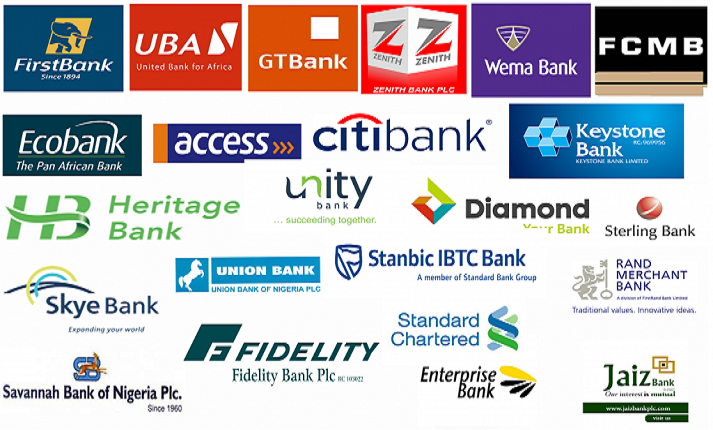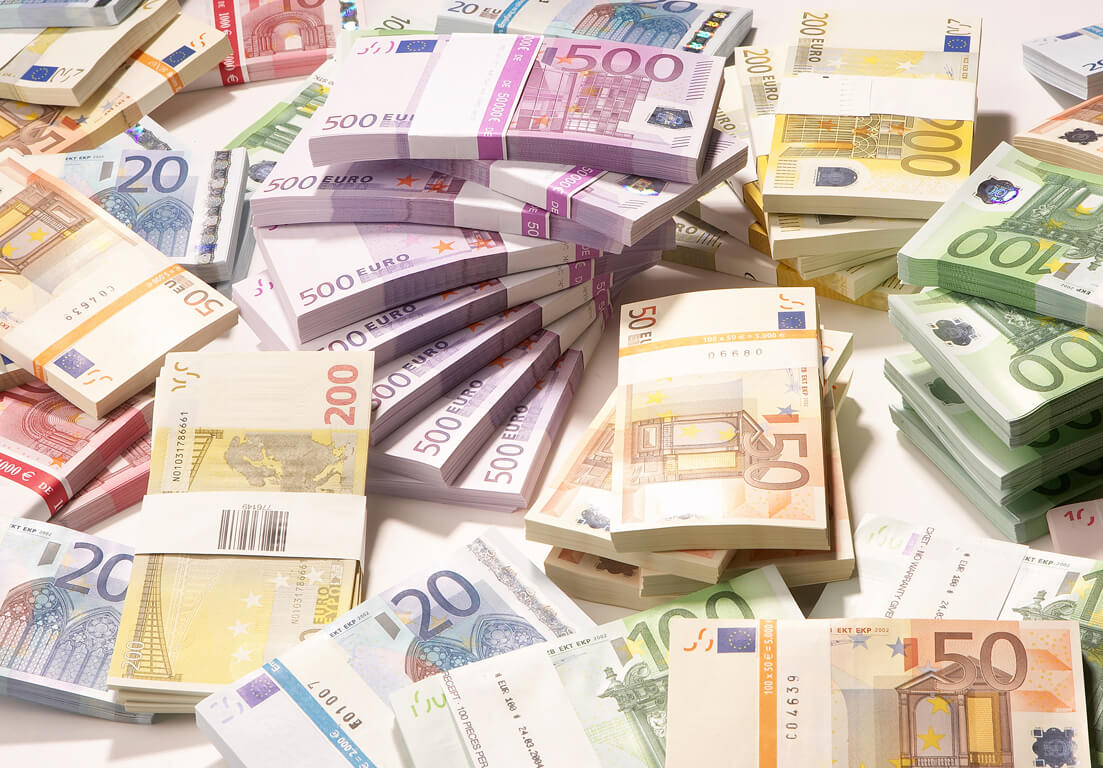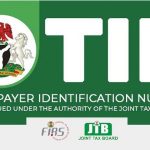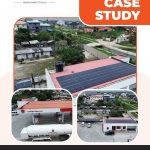Economy
Fitch Returns Nigeria’s Outlook to Stable, Forecasts 2% GDP Growth

**Says Inflation to Remain at Double Digits through 2019
**Debt to Hits 292% of Revenue
**Buhari Expected to Continue Economic Programme if Re-elected
By Dipo Olowookere
The outlook on Nigeria’s Long-Term Foreign-Currency Issuer Default Rating (IDR) has been reviewed upward to stable nearly six months after it was dropped to negative by Fitch Ratings.
In a statement dated November 2, 2018, the global rating agency said it also affirmed its rating on Nigeria at ‘B+’.
According to Fitch, the revision of the outlook on Nigeria’s Long-Term IDRs reflects the ongoing economic recovery and decreasing external vulnerabilities, both supported by increased oil production and higher global oil prices.
It noted that despite setbacks, the Nigerian economy is continuing its slow recovery from the recession that ended in early 2017.
Fitch pointed out that non-oil growth has been supported by an increase in the supply of foreign exchange and will receive an additional boost as the government begins its delayed implementation of the 2018 capital budget.
“Political uncertainty ahead of the general election scheduled for February 2019 may lead to some weakening in growth, but we expect any disruption to be short-lived,” the statement obtained by Business Post said.
It added that the contribution of the oil sector has been positive in the first half of 2018 as oil production, including condensates, has averaged just below 2.1 million barrels per day (mbpd), compared with 1.9 mbpd in 2017.
Fitch said it expects average production of crude oil in Nigeria to remain around 2.1 mbpd through 2018 and 1H19.
Fitch is forecasting a GDP growth of 2 percent overall in 2018, increasing to 2.5 percent in 2019 and 3.3 percent in 2020, and the agency expects that Nigeria’s medium-term growth will average around 4 percent.
It noted that oil production will increase as new exploration and oil infrastructure projects begin to come online, but emphasised that Nigeria will struggle to raise production to the levels envisaged in the 2019-2021 Medium Term Expenditure Framework (MTEF).
Fitch said high inflation has been a rating weakness, but CPI growth slowed to 11.3 percent year-on-year in September 2018, down from a recent peak of 18.7 percent in January 2017.
Inflation fell rapidly in 1Q18, but disinflation has slowed since, as base effects fade and conflicts between herders and farmers affect food supplies.
Fitch said it expects that annual average inflation will fall, but remain in the double digits through 2019.
“Despite falling inflation, Fitch expects that the Central Bank of Nigeria (CBN) will move towards tighter monetary policy to support FX rate stability,” the firm said.
The CBN has kept the monetary policy rate at 14 percent since May 2016, but has conducted monetary policy through its sales of Open Market Operation bills and by managing the reserve ratio.
Foreign currency availability has improved although Fitch believes that it remains a constraint on economic growth. The CBN continues to operate an FX regime with multiple windows and exchange rates, which will not change before the general elections. However, the wholesale interbank FX rate has depreciated, bringing it closer to the rate at the Investors and Exporters window.
Nigeria has increased its stock of international reserves to $44.6 billion (7.2 months of current external payments) as of September 2018, from $37.9 billion at end-2017.
The accumulation of reserves has been a function of both an increase in oil export receipts and an increase in inflow of foreign investments.
The rating agency said Nigeria’s external flows are exposed to global risk sentiments as well as to investor’s views on the country’s political and fiscal developments. However, the build-up of reserves provides a substantial external buffer.
“Nigeria’s ‘B+’ IDRs also reflect the country’s position as Africa’s largest economy and its well-developed domestic debt markets, balanced against low levels of domestic revenue mobilisation and of GDP per capita, a high level of hydrocarbon dependence, and low rankings on governance and business environment indicators.
“Nigeria continues to run persistent fiscal deficits at both the central and general government levels. Fitch forecasts a general government deficit of 4.3 percent of GDP in 2018, approximately the same as 2017.
“The government’s 2019-2022 Medium Term Expenditure Framework envisages a decrease in expenditure following three straight years of increasing capital expenditure. Lower expenditure, as a percentage of GDP, will help the general government fiscal deficit to narrow to 4 percent of GDP in 2019, but the government will continue to experience difficulty in raising non-oil domestic revenue.
“Oil revenue has increased since hitting bottom in 2016, but volatile production levels and inefficiencies within the petroleum sector have limited the transmission of higher oil prices to higher government revenue,” the statement said.
It added that Nigeria’s general government debt will rise to 292 percent of revenue, well above the historical ‘B’ median of 205 percent of revenue, reflecting the accumulation of new debt and the lack of progress on raising government revenue.
At 20 percent of general government revenue, interest payments are already more than twice the ‘B’ median. Federal government interest expenditure to federal government revenue stands much higher at just below 60 percent, the company stated.
“Fitch forecasts Nigeria’s current account (CA) surplus to widen to 3.6 percent of GDP in 2018 as oil export receipts have grown thanks to high oil prices. The CA surplus will narrow in subsequent years as import growth increases following several years of import compression related to tight foreign exchange supply. Nigeria is a net external creditor equivalent to 12 percent of GDP in 2018.
Fitch considers that the easing of foreign-currency liquidity has reduced risks regarding Nigerian banks’ ability to meet dollar liabilities and external debt repayments. However, economic headwinds have continued to affect asset quality.
“Average industry NPLs (according to CBN data) increased to 15 percent at end-2017, reflecting the lag affect from 2015. NPLs are concentrated in the oil and gas sector. The ongoing economic recovery, higher oil prices and widespread loan restructuring is likely to moderately help asset quality, but high NPLs will weigh on private sector credit provision.
“Credit to the private sector returned to modest positive growth in 2018 after tight domestic liquidity and crowding out from government borrowing led to a contraction of 5 percent through November 2017,” the firm said.
It was stressed that the outcome of the upcoming general elections remains uncertain. President Buhari will face a strong challenge from former Vice President Atiku Abubakar, who won the October 2018 primary to be the People’s Democratic Party candidate. Abubakar has made limited statements regarding his economic policy platform, but has criticised the current FX regime and has also signalled his support for devolving more control over public finances to the state governments.
“If Buhari is re-elected, we expect his government to continue implementing the economic programme outlined in the Economic Recovery and Growth Plan released in March 2017.
“Fitch does not expect widespread disruption or instability around the election. However, a flare-up of violence in the Niger Delta around the elections presents downside risk to the fiscal, external and GDP growth forecasts,” the rating agency stated.
Economy
Petrol Supply up 55.4% as Daily Consumption Reaches 52.1 million Litres
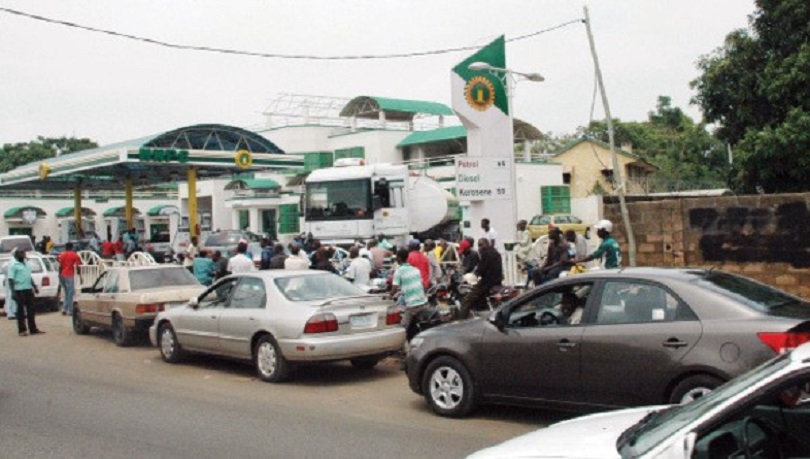
By Adedapo Adesanya
The supply of Premium Motor Spirit (PMS), also known as petrol, increased by 55.4 per cent on a month-on-month basis to 71.5 million litres per day in November 2025 from 46 million litres per day in October.
This was contained in the November 2025 fact sheet of the Nigerian Midstream and Downstream Petroleum Regulatory Authority (NMDPRA) on Monday.
The data showed that the nation’s consumption also increased by 44.5 per cent or 37.4 million litres to 52.1 million litres per day in November 2025, against 28.9 million litres in October.
The significant increase in petrol supply last month was on account of the imports by the Nigerian National Petroleum Company (NNPC) Limited into the Nigerian market from both the domestic and the international market.
Domestic refineries supplied in the period stood at 17.1 million litres per day, while the average daily consumption of PMS for the month was 52.9 million litres per day.
The NMDPRA noted that no production activities were recorded in all the state-owned refineries, which included Port Harcourt, Warri, and Kaduna refineries, in the period, as the refineries remained shut down.
According to the report, the imports were aimed at building inventory and further guaranteeing supply during the peak demand period.
Other reasons for the increase, according to the NMDPRA, were due to “low supply recorded in September and October 2025, below the national demand threshold; the need for boosting national stock level to meet the peak demand period of end of year festivities, and twelve vessels programmed to discharge into October, which spilled into November.”
On gas, the average daily gas supply climbed to 4.684 billion standard cubic feet per day in November 2025, from the 3.94 bscf/d average processing level recorded in October.
The Nigeria LNG Trains 1-6 also maintained a stable processing output of 3.5 bscf/d in November 2025, but utilisation improved slightly to 73.7 per cent compared with 71.68 per cent in October.
The increase, according to the report, was driven by higher plant utilisation across processing hubs and steady export volumes from the Nigeria LNG plant in Bonny.
“As of November 2025, Nigeria’s major gas processing facilities recorded improved output and utilisation levels, with the Nigeria LNG Trains 1-6 processing 3.50 billion standard cubic feet per day at a utilisation rate of 73.70 per cent.
“Gbaran Ubie Gas Plant processed 1.250 bscf per day, operating at 71.21 per cent utilisation, while the MPNU Bonny River Terminal recorded a throughput of 0.690 bscf per day during the period. Processing activities at the Escravos Gas Plant stood at 0.680 bscf per day, representing a 62 per cent utilisation rate, whereas the Soku Gas Plant emerged as the top performer, processing 0.600 bscf per day at 96.84 per cent utilisation,” it stated.
Economy
Secure Electronic Technology Suspends Share Reconstruction as Investors Pull Out

By Aduragbemi Omiyale
The proposed share reconstruction of a local gaming firm, Secure Electronic Technology (SET), has been suspended.
The Lagos-based company decided to shelve the exercise after negotiations with potential investors crumbled like a house of cards.
Secure Electronic Technology was earlier in talks with some foreign investors interested in the organisation.
Plans were underway to restructure the shares of the company, which are listed on the Nigerian Exchange (NGX) Limited.
However, things did not go as planned as the potential investors pulled out, leaving the board to consider others ways to move the firm forward.
Confirming this development, the company secretary, Ms Irene Attoe, in a statement, said the board would explore other means to keep the company running to deliver value to shareholders.
“This is to notify the NGX and the investing public that a meeting of the board of SET held on Tuesday, December 16, 2025, as scheduled, to consider the status of the proposed share reconstruction and recapitalisation as approved by the members at the Extraordinary General Meeting (EGM) held on April 16, 2025.
“After due deliberations, the board wishes to announce that the proposed share reconstruction will not take place as anticipated due to the inability of the parties to reach a convergence on the best and mutually viable terms.
“Thus, following an impasse in the negotiations, and the investors’ withdrawal from the transaction, the board has, in the interest of all members, decided to accept these outcomes and move ahead in the overall interest of the business.
“The board is committed to driving the strategic objectives of SEC and to seeking viable opportunities for sustainable growth of the company,” the disclosure stated.
Business Post reports that the share price of SET crashed by 3.85 per cent on Tuesday on Customs Street on Tuesday to 75 Kobo. Its 52-week high remains N1.33 and its one-year low is 45 Kobo. Today, investors transacted 39,331,958 units.
Economy
Clea to Streamline Cross-Border Payments for African Importers

By Adedapo Adesanya
Clea, a blockchain-powered platform that allows African importers to pay international suppliers in USD while settling locally, has officially launched.
During its pilot phase, Clea processed more than $4 million in cross-border transactions, demonstrating strong early demand from businesses navigating the complexities of global trade.
Clea addresses persistent challenges that African importers have long struggled with, including limited FX access, unpredictable exchange rates, high bank charges, fraudulent intermediaries, and payment delays that slow or halt shipments. The continent also faces a trade-finance gap estimated at over $120 billion annually, limiting importers’ ability to access the FX and financial infrastructure needed for timely international payments by offering fast, transparent, and direct USD settlements, completed without intermediaries or banking bottlenecks.
Founded by Mr Sheriff Adedokun, Mr Iyiola Osuagwu, and Mr Sidney Egwuatu, Clea was created from the team’s own experiences dealing with unreliable international payments. The platform currently serves Nigerian importers trading with suppliers in the United States, China, and the UAE, with plans to expand into additional trade corridors.
The platform will allow local payments in Naira with instant access to Dollars as well as instant, same-day, or next-day settlement options and transparent, traceable transactions that reduce fraud risk.
Speaking on the launch, Mr Adedokun said, “Importers face unnecessary stress when payments are delayed or rejected. Clea eliminates that uncertainty by offering reliable, secure, and traceable payments completed in the importer’s own name, strengthening supplier confidence from day one.”
Mr Osuagwu, co-founder & CTO, added, “Our goal is to make global trade feel as seamless as a local transfer. By connecting local currencies to global transactions through blockchain technology, we are removing long-standing barriers that have limited African importers for years.”
According to a statement shared with Business Post, Clea is already working with shipping operators who refer merchants to the platform and is also engaging trade associations and logistics networks in key import hubs. The company remains fully bootstrapped but is open to strategic investors aligned with its mission to build a trusted global payment network for African businesses.
-

 Feature/OPED6 years ago
Feature/OPED6 years agoDavos was Different this year
-
Travel/Tourism9 years ago
Lagos Seals Western Lodge Hotel In Ikorodu
-

 Showbiz3 years ago
Showbiz3 years agoEstranged Lover Releases Videos of Empress Njamah Bathing
-

 Banking7 years ago
Banking7 years agoSort Codes of GTBank Branches in Nigeria
-

 Economy3 years ago
Economy3 years agoSubsidy Removal: CNG at N130 Per Litre Cheaper Than Petrol—IPMAN
-

 Banking3 years ago
Banking3 years agoFirst Bank Announces Planned Downtime
-

 Banking3 years ago
Banking3 years agoSort Codes of UBA Branches in Nigeria
-

 Sports3 years ago
Sports3 years agoHighest Paid Nigerian Footballer – How Much Do Nigerian Footballers Earn




